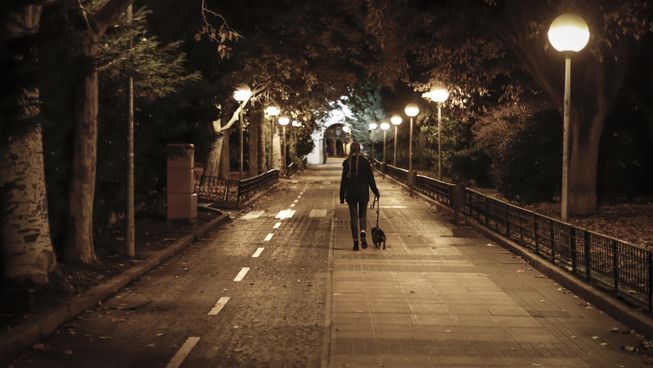Compassion Fatigue

“The influence of several situational and personality variables on helping behaviour was examined in an emergency situation suggested by the parable of the Good Samaritan. People going between two buildings encountered a shabbily dressed person slumped by the side of the road. Subjects in a hurry to reach their destination were more likely to pass by without stopping. Some subjects were going to give a short talk on the parable of the Good Samaritan, others on a non-helping relevant topic; this made no significant difference in the likelihood of their giving the victim help...” 1
The above abstract describes a seminal 1970's social psychology experiment involving students from Princeton Theological Seminary – in essence the more hurried the student the less likely they were to help an apparently unwell stranger1 . It is a fascinating read. Not least of which I felt intrigued to investigate after this was referenced in a (secular) ethics class I am taking at present in which one of the article’s commentary points was highlighted -
“Indeed, on several occasions, a seminary student going to give his talk on the parable of the Good Samaritan literally stepped over the victim as he hurried on his way!”
I have been thinking on the topic of empathy and threats to this of late as I wonder about the issues of compassion fatigue and burnout and the longer-term potential impacts in this marathon not sprint that is COVID-19. Psychologist Simon Baron-Cohen in contemplating the factors which can lead to ‘empathy erosion’1 (as he labels it) refers to fatigue – I don’t think this would be surprising to many of us. As Darley and Batson’s experiment above demonstrates not even religiously inclined people are immune to situational factors like being hurried – and I daresay being fatigued falls in the same boat. Christians are humans just as likely to become bankrupt of energy (and suffer the consequences) as any other humans burning the proverbial midnight oil in our own strength – we would be proud not to admit this.
What has struck me most in re-reading this infamous word of Jesus for the weary below is the simplicity of the command –
“Come to me…”
Come to Jesus.
In the ensuing months in the aftermath of the peak of the health crisis (which we dare look toward now in Australia though recognise many around the world
remain in the eye of the storm so-to-speak) everyone is going to be tired – albeit for different reasons.
For my medical colleagues I worry this will be more insidious and hidden – it may not be the trauma of losing hundreds and thousands of lives a day as has been seen overseas, but there will be other things that will weigh on the heart and mind; breaking bad news via telehealth, explaining why one relative only is allowed to visit the palliative care ward each day, explaining why the latest clinical trial treatment can’t continue for the young patient with advanced cancer.
They will not be alone…the teachers will be tired from pivoting classroom teaching to online to classroom again, the economists will be tired from mitigating economic downturn and the weight of thousands losing employment on their minds, the parents will be tired from working and parenting…everyone is going to be tired.
Will we recognise and admit this? And which self-help guru / book / fad will there be left to turn to?
Come to me, all you that are weary… Come to Jesus.
These words of Jesus suggest both an invitation as well as a command. They invite us to respond.
“Come to me, all you that are weary and are carrying heavy burdens, and I will give you rest. Take my yoke upon you, and learn from me; for I am gentle and humble in heart, and you will find rest for your souls. For my yoke is easy, and my burden is light”. – Matthew 11:28-30
1 Darley, J and Batson, C D. “From Jerusalem to Jericho: A Study of Situational and Dispositional Variables in Helping Behaviour” in Journal of Personality and Social Psychology. 1973. Vol 27 (1): 100-108
2 Baron-Cohen, S. “Empathy makes the world go round” in Sydney Morning Herald, 26 th June 2011 (https://www.smh.com.au/entertainment/books/empathy-makes-the-world- go-round-20110625-1gkst.html)
Written by Sarah Heynemann
This article has been reworked from a reflection first written for Salt & Light daily devotionals.
More like this ...








